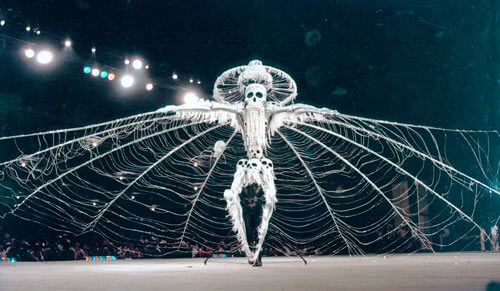President Obama will end 2011 in much better shape to gear up for his re-election bid than anytime this year. Like 1992, when Bill Clinton short-circuited the second-term ambitions of George H.W. Bush, this was always going to be another “It’s the economy, stupid” election, given what primarily was responsible for Obama’s triumph in ’08 and what has been the biggest source of frustration in his tenure to date.
One dare not omit, frustration-wise for the president, the kind of reckless action (or non-action) that has been the proud boast of House Republicans ever since a gullible voting public gave them a hefty majority in the mid-term elections last year. That more sober heads prevailed in derailing their sick idea of a flourish with which they intended to end the just-concluded Capitol Hill session – rejecting the two-month payroll tax cut extension passed by the Senate — was actually somewhat of a surprise. It’s safe to assume that only the reality of how politically suicidal their stand was, driven home by a Senate party leadership that had overwhelmingly supported the tax cut compromise, brought the House renegades to heel. That, plus running afoul of the dreaded Grover Norquist by essentially voting for a tax increase, if the existing payroll tax reduction had been allowed to expire.
So, small though it was as victories go, more hand-to-hand combat on this and other tax issues coming right up, Obama at least ended the year with the threat of a government shutdown and all that baloney off the table. And although he seemed to be treading water in his efforts to get Congress to pass his vaunted jobs bill, the year has come to a close with that menacing nine percent unemployment figure having at last been clipped…for the president and the nation, hopefully for the long haul. Also, people’s spending patterns for the holiday season seemed to give some modest indication of an uptick in consumer confidence – a key ingredient in the mix for any return to economic buoyancy. All of which is news Obama can use.
As far as who winds up being the president’s opponent next November, it would be interesting, as we’ve speculated here previously, if Republicans ever again opt for the multiplicity of debates that has been their m.o. this time around. The road to a nominee seems to have had way too many plot twists for the average voter to keep track of. Bachmann, Cain, Perry, Gingrich and Romney have all worn a “frontrunner” label at different points in the marathon. In the Iowa vote shortly upcoming, even the perennially running Ron Paul is being touted as among the elite of the pack…not that winning in Iowa means squat, as Mike Huckabee found out in ’08. The common denominator among these prospective nominees is that they are all eminently beatable. It’s been obvious for a while now that the problem for Obama in his quest for a second term wouldn’t be posed by any of the names in the hopper as a potential GOP opponent, but by a stubbornly weak economy that frittered away his support. Only if the latest signs of a brightening economic outlook begin trending south again should the president have real cause for concern.
On foreign policy, Obama stands on pretty solid ground. Truth to tell, his foreign policy has in many ways been conducted more in the manner of a Republican than a Democratic administration. No surprise that there are some progressives not very enamored of a hawkish look to some of the Obama policy decisions (the initial saber rattling and eventual participation in Gaddafi’s dethronement in Libya being definitely one of them). But major successes on his watch, such as the capture and elimination of Osama bin Laden, have been nothing to scoff at. Of course, the fact that there may be somewhat of a rightward tilt to his foreign policy direction registers for not much among the element in the country that is rabidly anti-Obama. That isn’t about to change.
Likewise are there assuredly some small percentage of persons of color who have been disappointed by the degree of blackness manifested by the president. Disgruntlement has surfaced over what seems a deliberate sidestepping of any identification with concerns of the poor, as opposed to constantly beating the drums for the middle class. But hardly are these areas of unease sufficient to meaningfully compromise Obama’s base support.
That having been said, one would hope for some learning-curve dividends in a second Obama term. Those of Black Nationalist bent who idly demand nothing less than an Obama hewing faithfully to that path are, as is generally the case, cluelessly out to lunch. Which is not to say one approves of Obama trying too hard not to be a Black president, which for many has been a first-term irritant. Attorney General Eric Holder, as the only Black cabinet member, has been perhaps the symbolic reminder of an avoidance complex (?) on the president’s part that frankly defies logic. More of the same in a second term would be a bit much. One would hope that Obama, in a second term, would vigorously step into the role of a true progressive, of which the other side has accused him. There’s a legacy to build, alright. But what’s to fear? Some sterling examples in that mold have been predecessors.
























